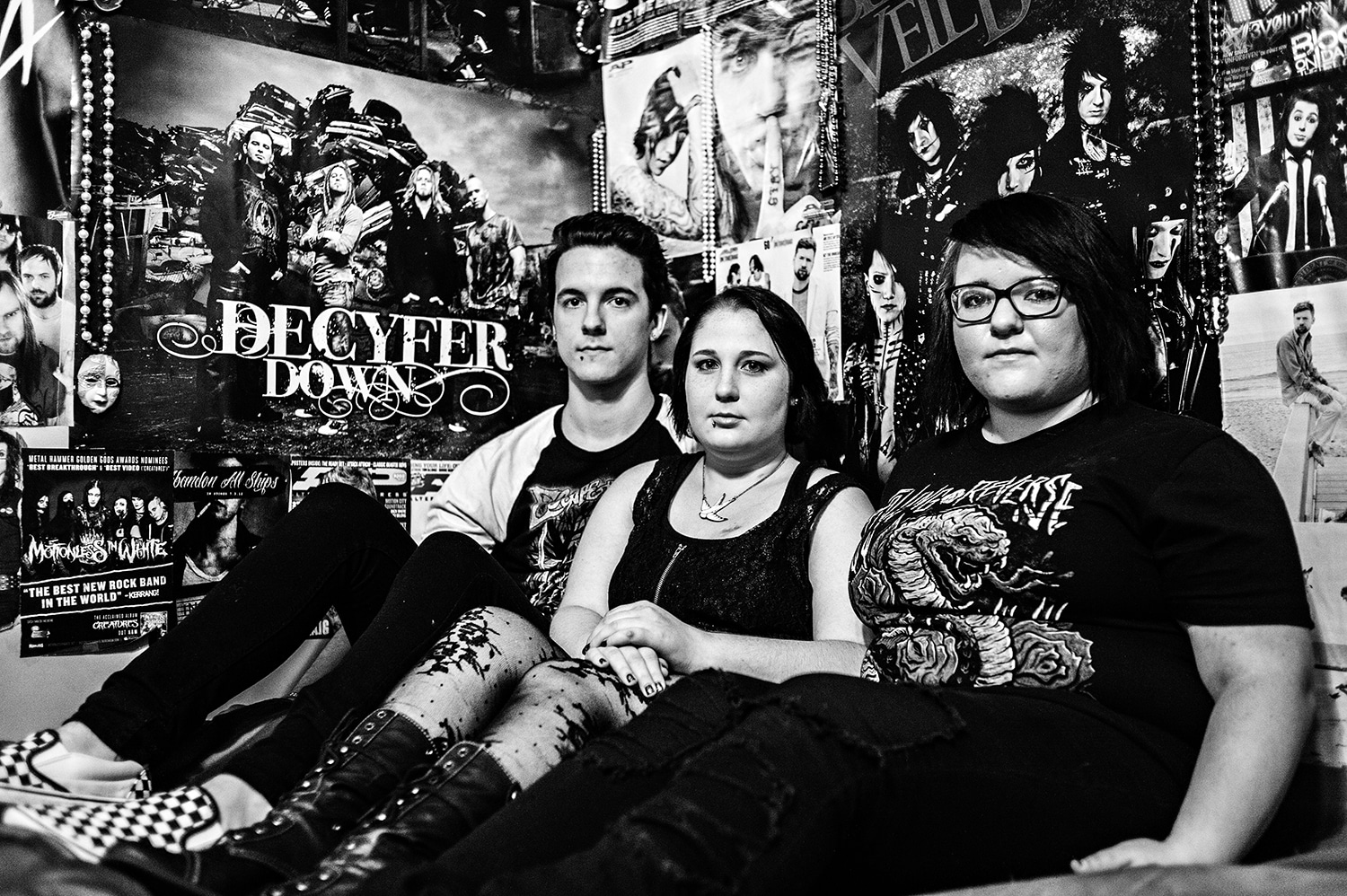THE ODDS THAT A TEEN or young adult will develop a severe illness are low. But as we know–some of us all too well–cancer knows no barriers, including age. In 2009, the latest year for which nationwide statistics are available, nearly 24,000 young Americans 15 to 29 years old were diagnosed with cancer. Of these, close to 1,100 were young women diagnosed with breast cancer.
For young people already struggling to make ends meet–especially those lacking health insurance–cancer can seem insurmountable. “I tell my patients, ‘Please do not worry. First we deal with the breast cancer. Over time, we will find the [financial] resources needed,’ ” says Andres Forero, a medical oncologist at the University of Alabama at Birmingham who has observed firsthand the difficulties many of his young patients have faced when trying to regain their health at the same time they’re battling debt collectors and eviction notices.
Find support services and materials just for you.
- National Cancer Institute
- Planet Cancer
- SAMFund (Surviving and Moving Forward)
- Stupid Cancer
- The Ulman Cancer Fund for Young Adults
- Young Survival Coalition
The four young breast cancer survivors whose stories and photos follow on these pages are navigating cancer under financial strains of various kinds. Each woman–Leah Price, Brittney Bass Gray, Raquel Smith and Whitni Collins (three of whom have been treated by Forero)–offers a candid look at her life, exposing the realities of facing the demands of cancer treatment while attempting to work, go to school or raise a family.
The images captured here by photographer David Jay reflect moments in each woman’s life that are uniquely her own, yet are all too familiar to those of us who have been in similar circumstances, managing cancer while we are much too young.
Leah Price
On the day in August 2012 when David Jay met Leah Price, 21, face-to-face in her hometown of Demopolis, Ala., the weather kept the photographer and his subject mostly inside.
“I was very excited and very nervous about having my picture taken,” admits Price, who was diagnosed with stage III estrogen receptor-positive breast cancer at age 18. “David wanted to take some pictures outside, but it started to rain too bad.”
The photo equipment was instead set up in the bedroom Price shares with Carley Wrensted, her boyfriend Tyler’s sister. Price (sitting between Tyler and Carley above) has lived in the Wrensteds’ home for almost a year. Prior to that, she bounced between her sister’s house and her mother’s apartment. She has a part-time job as a cashier at the local Dollar General and depends on the Wrensteds’ support.
When Price was diagnosed in February 2011, her situation was rare: Breast cancer is diagnosed in just 2 out of every 1 million American women under age 20, according to the National Cancer Institute. Her tumor was large–5 centimeters–and growing rapidly, so she had chemotherapy for about six months to shrink the tumor before undergoing a mastectomy in July 2011. It took until September 2012 for Medicaid to approve coverage for Price’s breast reconstruction. “I was so happy I was finally getting the surgery, I cried!” she says.
Price, who became engaged to her boyfriend this March, is confident she’ll “be happy”–and hopeful she’ll remain free of cancer. A tattoo etched on her back proclaims that she is “Forever Young”: a reminder not only that she never had a chance to be a typical 18- or 19-year-old, but also of her young self’s strength and resilience.
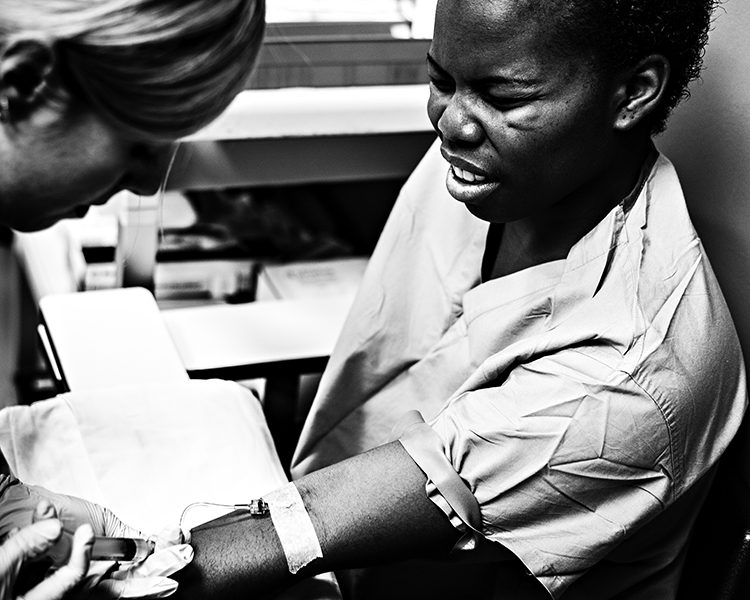
Photo by David Jay
Brittney Bass Gray
Wincing from the injection of dye into her left arm, Brittney Bass Gray, 26, prepared to undergo an MRI in September 2012 at the University of Alabama at Birmingham’s Kirklin Clinic to see if the stage I triple-negative breast cancer she had been diagnosed with at age 24 in August 2011 had returned or spread to other parts of her body. Her doctors had become concerned when Gray reported excruciating pain and sickness after taking on a second job, just a few weeks earlier, in the shipping and receiving department of a local company.
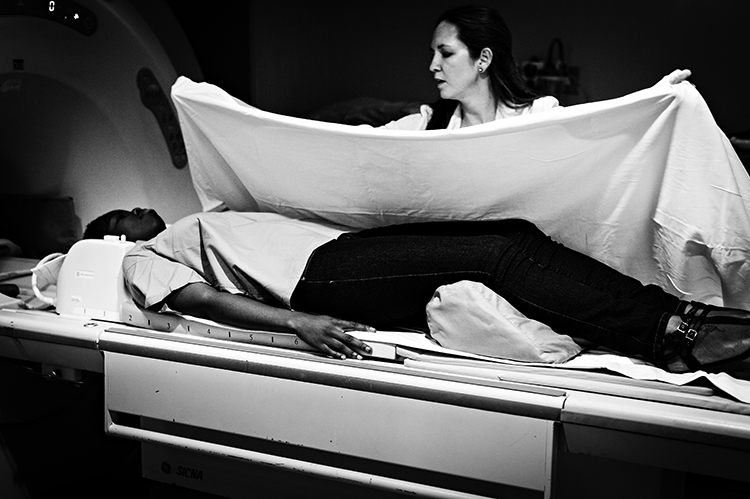
Photo by David Jay
“I was extremely nervous and worried about the [MRI] outcome,” Gray confides. Fortunately, the scan showed no hints of cancer, but at her doctor’s urging she left the job to avoid further physical strain. With the loss of income, Gray and her new husband, Brandon, struggled to pay off the money they owed for her treatments.
“I was sad and disappointed in myself that I could not handle the job demands,” says Gray. “And bills still needed to be paid.”
Gray has weathered a series of incredible storms: first Hurricane Katrina in 2005 when she was an 18-year-old college student in New Orleans. Then when Gray was at the University of Alabama at Birmingham in 2011, a tornado destroyed her apartment. She may have faced breast cancer without insurance if not for certain provisions of the Affordable Care Act that went into effect in 2010. Under the new law, young adults can stay on their parents’ insurance plans until age 26, even if they are not full-time students. “Because of the Affordable Care Act,” says Gray, “I could take a break [from school] and stay on the insurance.”
Gray, who married her husband in April 2012, intends to return to the University of Alabama at Birmingham this summer; she is majoring in math and psychology. She says that her experience with breast cancer has prepared her to share an important message with other young survivors: “You can still smile, fall in love, be who you are no matter what happens with this disease.”
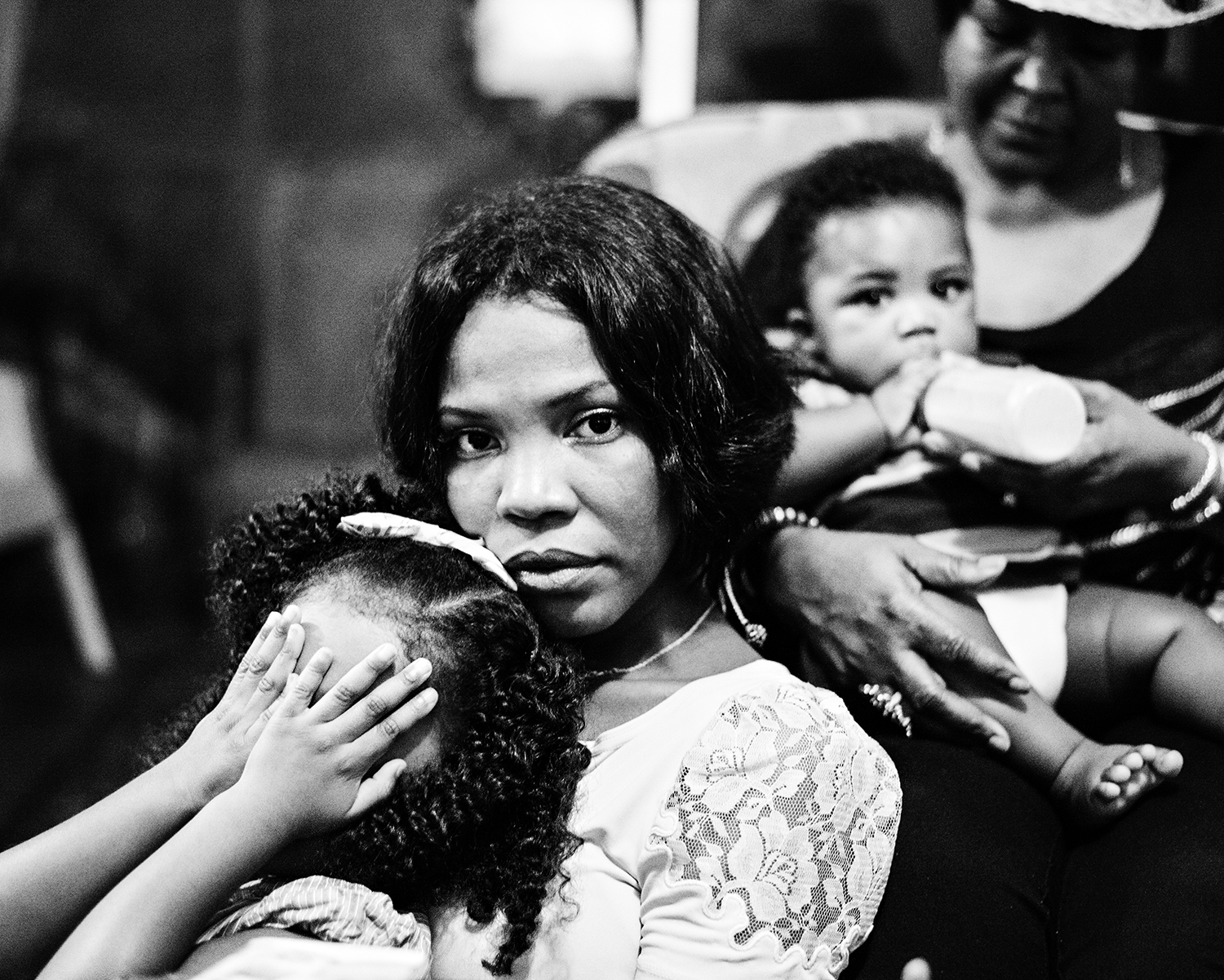
Photo by David Jay
Raquel Smith
David Jay first met Raquel Smith, 30, the evening before her breast reconstruction surgery.
“He took a picture of me holding my daughter, Rose, and my mom and son, Rob, behind me, sitting in our den at home,” she says. The next morning, Jay accompanied Smith and her family and friends to Brookwood Medical Center in Birmingham.
It had been a long road for Smith, who was diagnosed with stage IIB triple-negative breast cancer at age 27, when her daughter was 1 year old. Rose had been weaned for six months when persistent soreness and a hard knot in Smith’s left breast led her to the doctor, who removed the lump and told her not to worry. Then Smith got a call asking her to return to the office.
The doctor told Smith a biopsy of her lump showed she had breast cancer, and that because the tumor was so close to the chest wall she should consider having a double mastectomy. “My mom was crying,” Smith recalls,” and I just said, ‘I got a little girl and I need to do whatever I have to do to live.’ “
Because she could not work while undergoing treatment, Smith had to give up her job with a car rental company and lost her health insurance. She discovered she was pregnant with her son while she was undergoing radiation. Pregnancy on top of a cancer diagnosis complicated her treatment, adding tests, medicines and expenses. “It was hard,” says Smith, who doesn’t regret any of the decisions she has made.
“I stay focused on what’s important,” she says. “I’m a mother. I gotta be thankful for every day I have with my children.”
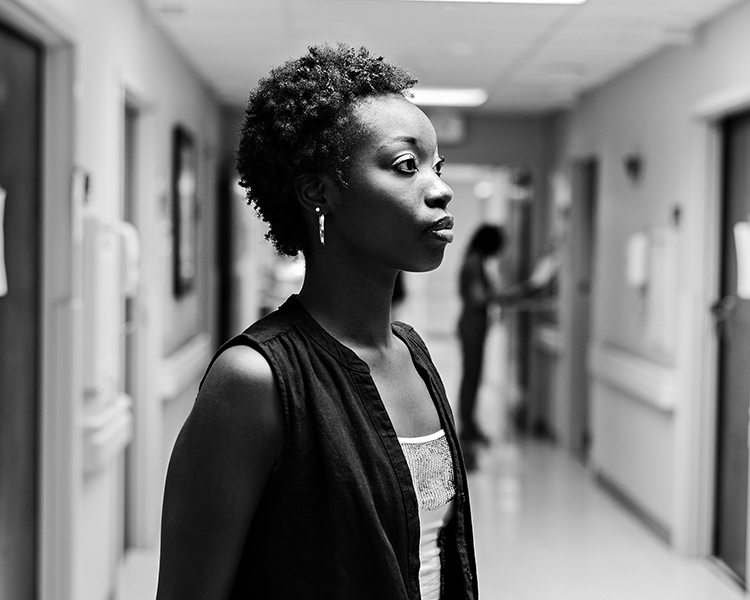
Photo by David Jay
WHITNI COLLINS
Whitni Collins, 27, was diagnosed with stage II breast cancer in October 2010 at age 24. Collins and Raquel Smith met at a support group for triple-negative breast cancer survivors in Birmingham, and Collins (leaning over Smith at lower left) went to the hospital to offer support when Smith had reconstructive breast surgery.
The experience made Collins think about her own treatment, she says, and to question “whether I did the right thing by deciding not to get the mastectomy.”
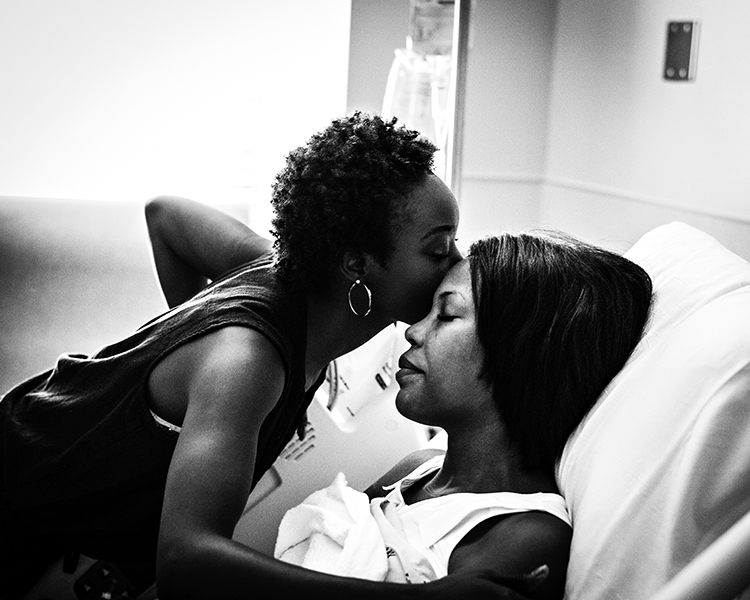
Photo by David Jay
Andres Forero had recommended that Collins have a double mastectomy followed by chemotherapy and radiation. But her mother, a Seventh Day Adventist who favors natural therapies, had been against the plan. Ultimately, Collins opted for a lumpectomy instead of the double mastectomy.
Amid her medical struggles, Collins, a respiratory therapist, found that she could work only on the “off weeks” between chemotherapy treatments. She lost hours at her job and fell behind in paying her bills. Eventually her health insurance policy lapsed, and she was unable to renew it.
Last September, with Collins several months behind in rent, her landlord asked her to move out. She began to inquire about women’s shelters, but then found a place to stay with a friend. She was able to move into an apartment of her own in February.
Though Collins may not have the physical disfigurement from treatment that some other patients do, she says all breast cancer survivors “have scars.” Says Collins, “Mine just happen to be inside.”
Her experiences have made her stronger, she adds: “I’m young, and I have a lot of living left to do.”
Cancer Today magazine is free to cancer patients, survivors and caregivers who live in the U.S. Subscribe here to receive four issues per year.

